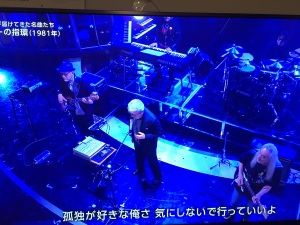Kohaku Utagassen 2023 ― 2024/01/04

Image retrieved from グランドオープニング | 第74回NHK紅白歌合戦
- Sorry in advance for not being politically correct (excuse has been made), but this time the show seemed to put too much emphasis on so-called "diversity", different ages, genders and sexual orientations, nationalities, races and physical characteristics (eh, disabilities, in short), but not political and religious identities. The performers were so varied the show ended up looking like a kind of chaos. I don't think I'm narrow-minded enough not to listen to people just because they are different. In fact, I tend to assume that anyone who can comprehend my great Japanese English, or my inconsistent Japanese is my friend, even if they don't think so. Anyway, while watching, I felt that heterosexual Japanese men with a wife and two children (a conventional archetype of Japanese), were excluded or simply treated as "wrong".
- Also, what we call "Chu-Ni Byo (14-year-old disease)", which used to be an underground culture, seemed to be accepted, or even saluted in the Kohaku. Girls and boys who might have been left out of the classroom in the past yelping merrily on stage should be something to celebrate. To be honest, it was a bit hard to watch. The more animated they were, the more pathetic and sadder they looked to my eyes.
- Was there ever a time in the history of Kohaku when there were only elderlies on stage like this? When I came across this view, I thought that I had mistakenly tuned in to another station broadcasting "Toshiwasure Nihon no Uta (Year-End Japanese song festival)" where you can see singers who were active during the Showa era. I prefer this if I go for oldies.

A breakthrough!
最近のコメント